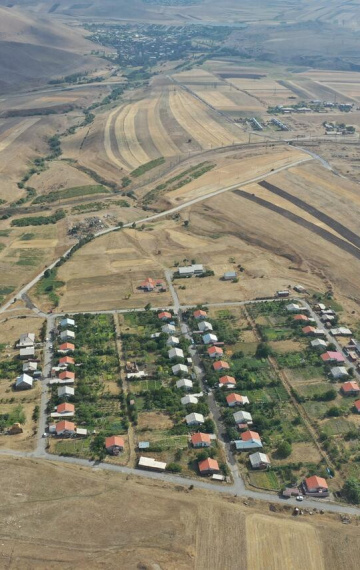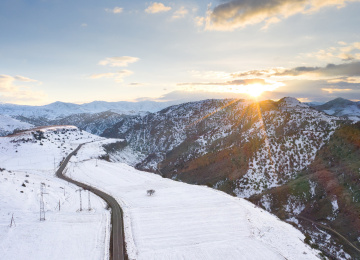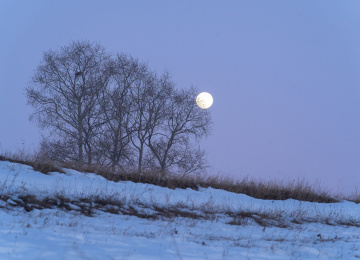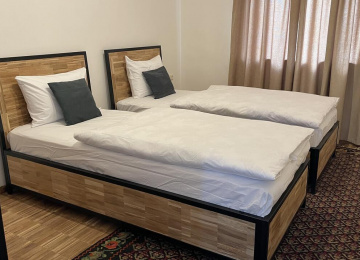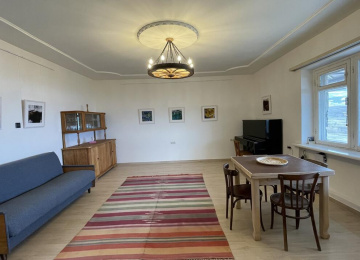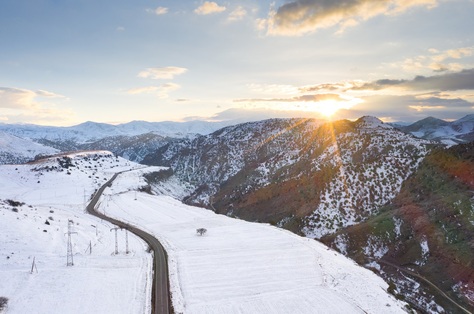
The Berlin Art Hotel project called “Nature and Adventure Village” is hoping to expand the infrastructure of Krashen, an alpine village nestled in northeastern Armenia, and turn it into a magnet for tourists—for adventure, health, sports, and green tourism. The area is known for its amazing natural beauty, which attracts visitors in all seasons of the year. Abundant water resources like waterfalls and mineral springs are just one source of interest. Another is the beautiful pines, which are great for those with respiratory problems, not to mention the honey produced from Krashen wildflowers. The area also boasts hiking trails, beautiful snow cover in winter, connections with the gorge villages of Salut, Bashgyugh, Kakavasar, and Dzorashen, and a road leading to Trchkan Waterfall.
With the support of EU4Business “Innovative Tourism and Technology Development” (ITTD) project, the Tui-Tui Eco Lodge has been established as an eco-friendly guesthouse in Krashen. Visitors can rest and relax, eat organic food, go on hiking or skiing tours, and train in the open-air sports area here.
The Tui-Tui Eco Lodge also provides jobs for locals. In the longer term, the goal of this pilot project is to turn Krashen into an eco-village. This will contribute enormously to the development of domestic tourism, which is more important than ever with the current restrictions of foreign travellers.
Several important steps have been taken to make the initiative succeed.
An open-air sports area and gym have been constructed using local limestone with facilities for both adults and children. The gym will be used, among others, to prepare visitors for adventure tours through physical exercises.
The “Nature & Adventure Village” project initially intended to renovate a restroom for visitors, but Berlin Art Hotel’s team decided to also build a bathroom for one of the bedrooms to provide more comfort for guests planning to stay overnight in the eco lodge.
A solar water heater was installed on the roof of the eco-lodge as a part of the project. For maximum efficiency, Berlin Art Hotel installed 9.5 kW solar photovoltaic panels, as well as heated flooring throughout the eco-lodge with a loan it received to solve heating issues.
Three road signs were designed and printed to be installed, one on the main Gyumri-Krashen road and two on inter-village roads. An information desk was designed to be located at the entrance to the lodge.
Four waste-sorting bins for paper, plastic, glass and organic waste have been installed at the eco-lodge.
The “Customer Service During and After the Pandemic,” “Adventure Tour Guide,” “First Aid,” and “Developing Rural Livelihood through Enhanced and Sustainable Use of Wild Valuable Plants in Shirak Region” projects all held workshops at the Berlin Art Hotel.
The project is also cooperating with Krashen livestock and vegetable farms to involve them in rural tourism, food supply and the establishment of more eco-lodges in the future. It is already collaborating with the Krashen Community Development Initiative Group, an NGO, and the Krashen Eco Farm group.
Today, three people from Krashen have permanent jobs, a number that is expected to increase in the upcoming years.
The owner of the eco lodge, Alexan Ter-Minasyan, tells an interesting story about the origins of the guesthouse name, “Tui Tui.” Apparently, the residents of Krashen came from the village of Pztik Tui, and Tui Tui is the name of a bird.
“Our guesthouse’s symbol is a bird, our logo is a bird, and our rooms are named after birds, such as the Artuyt Room and the Hopop Room,” explains Ter-Minasyan.
Ter-Minasyan has plans to expand his guesthouse, to establish a small first aid point, and to start the small-scale production of rose jam. The guesthouse is active on the Facebook and Booking platforms.
“We’ve been able to keep our staff on during this difficult financial situation and even think about expanding the guesthouse,” says Ter-Minasyan. “The EU helped us stay hopeful and believe that, despite all the difficulties and challenges we faced over the last year, tourism is not a dead end in Armenia, and we can continue our efforts. We have great expectations for this summer, and are thankful for this support.”

